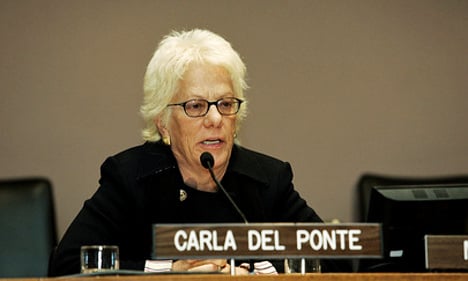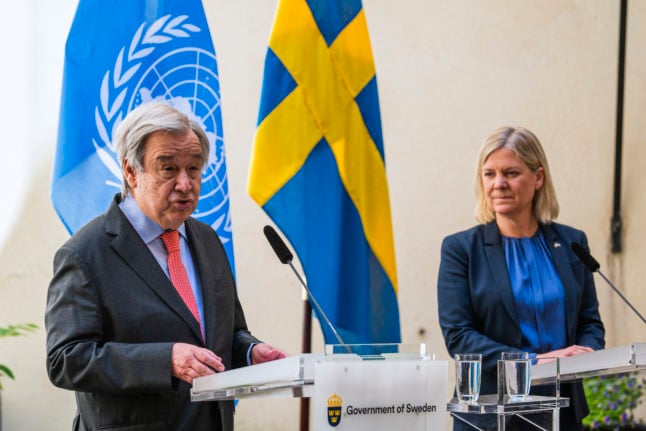"According to the testimonies we have gathered, the rebels have used chemical weapons, making use of sarin gas," del Ponte, a former war crimes prosecutor and a member of a UN commission of inquiry on Syria, said in an interview with Swiss Italian broadcaster RSI on Sunday.
The four-member commission, headed by Brazilian Paulo Sergio Pinheiro, issued a statement Monday "to clarify that it has not reached conclusive findings as to the use of chemical weapons in Syria by any parties to the conflict."
Washington questioned the claim Monday, with a top State Department official insisting: "We have no information to suggest that they have either the capability or the intent to deploy or use such weapons."
In the RSI interview, del Ponte, who during her time at the international criminal courts for the former Yugoslavia and for Rwanda was renowned for her abrasive style and sometimes rash media comments, also acknowledged that there was "still not irrefutable proof" of chemical weapons use.
But she said that based on evidence from victims and doctors there were "very strong suspicions, concrete suspicions that sarin gas has been used . . . by opponents, by rebels, not by government authorities."
She said that the investigation was far from over and added: "We have not excluded the use of chemical weapons by the government."
Her comments came amid growing Western pressure on Assad's regime over suspected chemical weapons use in the 26-month-old conflict and follow Israeli raids on military sites near Damascus over the weekend.
US President Barack Obama has said that the use of chemical weapons by the regime was a "red line" for his administration but has pressed for further evidence before taking action.
UN leader Ban Ki-moon at the end of March tasked a separate expert commission with probing whether chemical weapons were being used in Syria, but last week Syrian authorities said they would only permit inquiries into suspected rebel uses of the weapons.
Del Ponte's commission, which was set up two years ago at the behest of the UN Human Rights Council, has also so far been unable to gain access to Syria as Damascus has ignored repeated requests for entry.
Instead, it has interviewed over 1,500 refugees and exiles as a basis for its reports and its charges that both the government forces and their allies and opposition forces have committed war crimes in Syria, where more than 70,000 people have been killed since the violence exploded in March 2011.
In light of the commission's lacking direct access to Syria, Del Ponte's comments drew rebuke from some human rights circles Monday.
"In the heated debate over the use of chemical weapons use in Syria, it is simply irresponsible for a top UN official to make such claims without a solid factual basis," a human rights official told AFP, requesting anonymity.
Sarin is a powerful neurotoxin developed by Nazi scientists in the 1930s.
Originally developed as a pesticide, sarin was used to deadly effect in air raids in 1988 by former Iraqi president Saddam Hussein's forces on the Kurdish village of Halabja in northern Iraq that left an estimated 5,000 people dead, mostly women and children.
It is regarded as the worst ever gas attack targeting civilians.
A Japanese cult also used sarin in two attacks in the 1990s.
Inhaled or absorbed through the skin, the gas kills by crippling the central nervous system and paralyses the muscles around the lungs.
UN
Informers claim Syria nerve gas use: UN official
Syrian rebels may have used the deadly nerve agent sarin, UN rights investigator Carla del Ponte said, although her team and Washington insisted Monday there was no "conclusive" proof.
Published: 6 May 2013 18:51 CEST

Carla de Ponte. Photo: UN/Devra Berkowiz
Url copied to clipboard!


 Please whitelist us to continue reading.
Please whitelist us to continue reading.
Member comments